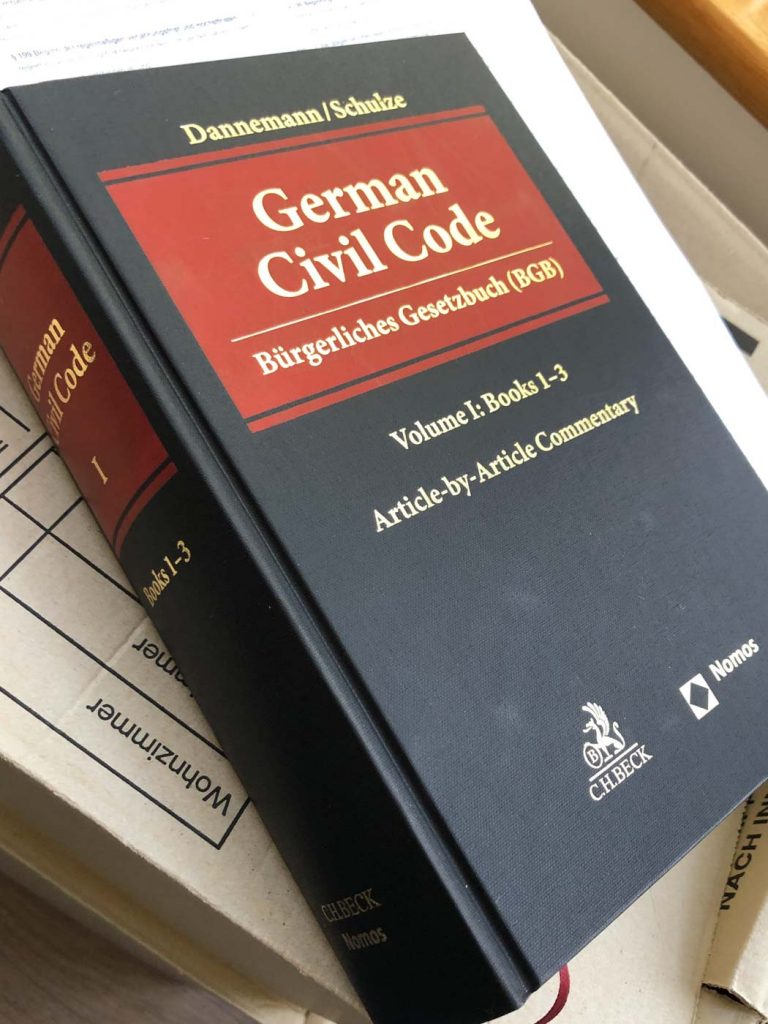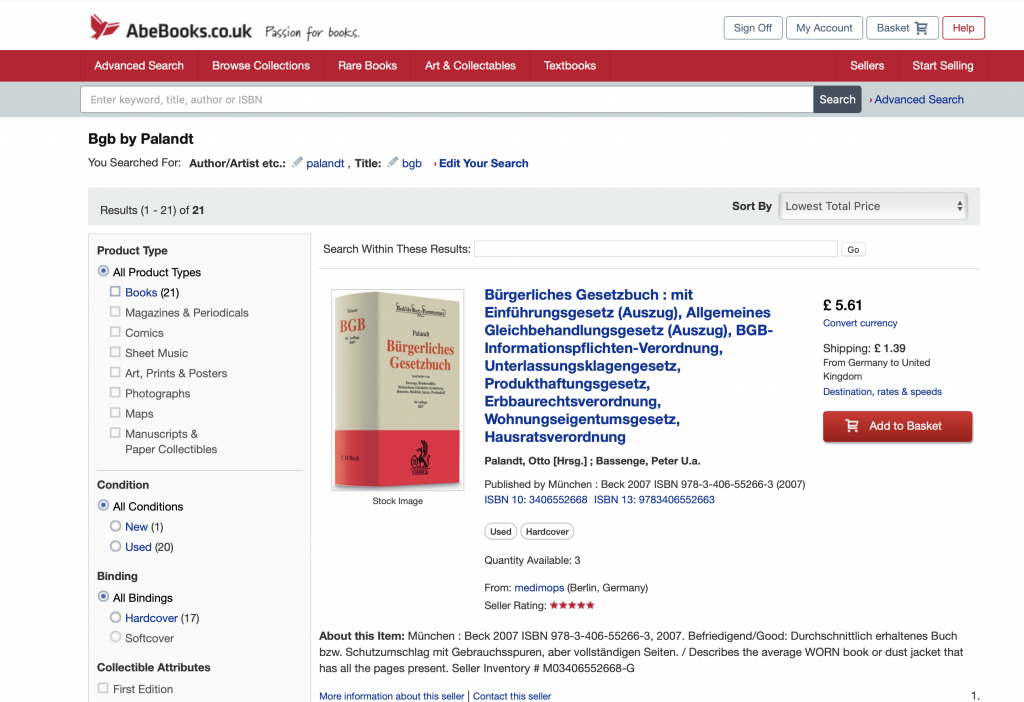Some TranslationTalk tweets this week reminded me of the terms functional equivalence and formal equivalence. I haven’t thought about these terms for years so I thought I would refresh my memory. (This is not a disagreement with the TranslationTalk tweets – they just reminded me of it).
When I started teaching legal translation, in the late 1980s, in those glorious days when no one much wanted legal translation at all, let alone for it to be taught, except, as it happened, the Bavarian courts, I was pleased to be recommended Martin Weston’s book An English Reader’s Guide to the French Legal System. I should add that legal translation had not yet been discovered as such a cornucopia for academic investigation – this was before Susan Šarčević’s New Approach to Legal Translation (which was hampered by having to take many of its translation examples from Canadian French, which is usually translated into Canadian Frenglish). We didn’t have internet resources in the 80s, whereas nowadays, at least for the German and English language pair, there are plenty of bilingual materials online.
Martin Weston had translated in the Secretariat of the Council of Europe in Strasbourg and was then Senior Translator in the Registry of the European Court of Human Rights. His book was originally a dissertation for a linguistics MA. He has a full bibliography of works on linguistics and translation theory; law; and dictionaries and lexicography.
I found Weston’s analysis of how to translate legal terminology very useful for teaching, though when I myself had a problematic term to translate, I didn’t run through his categories in my head but simply decided how close the German and English terms should be and how they would work in my context before I decided how to translate them.
Weston says that there are five possible approaches to translating ‘culture-bound’ SL expressions (incidentally it looks as if Newmark did something like this at an earlier date):
- nearest equivalent TL concept (départment: county)
- translate word for word (Académie Française: French Academy)
- transcribe the foreign expression, adding a TL explanation if necessary (croissant: croissant – needs no explanation)
- create a neologism: a) a literal translation / calque (université du troisième age: university of the third age) b) naturalization (informatique: informatics) c) use existing naturalization (départment: department);
- use an existing naturalization (which may be felt to be a native TL expression) (département: department,
Number 1 is functional equivalence, number 2 is formal equivalence.
Thus one could translate le Conseil des ministres as the Cabinet – to translate it as the Council of Ministers would have no equivalent in British culture and would conflict with the English title of the decision-making body of the European Community.
It’s for every translator to decide which type of translation works in English – in any case, many translations of terms have become standard now. I was surprised at the suggestion that a civil-law lawyer might be translated as barrister or solicitor, depending on their current role, because for me the terms are too specific to the English divided profession. Weston does discuss this at length. He seems inclined to accept barrister as a generic term. Discussing how to translate avocat (p. 103), Weston finds that the differences “are not such as to preclude the trnaslation ‘barrister’, however. At the same time, though, it should be noted that, just as many international organizations have official titles in more than one language, so European Community barristers, who are now allowed to practise in any member State, must use only their original official title (e.g. avocat, Rechtsanwalt, barrister), not a translation.”
When I wanted to use this list in teaching, I tried to replace the French examples by German ones, but it didn’t work very well. If you translate Kabinett as Cabinet, I suppose you have both formal and functional equivalence. But still it seemed a useful way of thinking about terminology – not that legal translation consists solely of terminology.
If I were to encounter the word Rechtsanwalt to translate for the first time today, I would have a number of dictionaries to consult and examples to consider. I probably wouldn’t have the time to research in great detail the precise differences not only between Rechtsanwalt and Notar, but between solicitor, barrister, attorney, lawyer, attorney-at-law. As Weston writes, “In a court context, avocat (de la défense) will often be translated as ‘counsel for the defence)'”. But I would be thinking: is this close enough functionally? would it confuse the English reader? how much support does the rest of the text provide to the intended meaning? how important is a precise rendering of this term in this particular text? who is going to read it? (my texts are never intended specifically for England and Wales, but for a number of readers, some of whom aren’t even in common law systems).
I agree with Malcolm Harvey on this (A Beginner’s Course in Legal Translation: the Case of Culture-bound Terms)
Malcolm Harvey Université Lumière Lyon 2, France
Authors are divided over the merits of this technique: Weston describes it as the ‘ideal method of translation’ (1991:23), whereas Sarcevic claims it is ‘misleading and should be avoided in the translation of laws’ (1985:131). Experience shows that learners tend to overuse this device, no doubt because it is aesthetically satisfying and allows them to apply newly-acquired knowledge about the TL system. This can cause them to ignore potential dangers: for instance, the term tribunal d’instance can produce anomalies such as ‘Magistrates’ Court’ or ‘County Court’, which sound distinctly odd in the French context. This temptation is shared by dictionaries and vocabulary books, which sometimes offer incongruous or erroneous equivalencies such as Garde des Sceaux = ‘Lord Chancellor’; avocat général = ‘Queen’s Counsel’ (Gusdorf 1993:85).
Apprentice translators should double-check both denotation and connotation before resorting to a functional equivalent.
This technique is appropriate for the translation of texts intended for the lay reader (novels, general newspaper articles, political speeches etc.) in contexts where scrupulous accuracy is less important than fluency and clarity. However, in a document intended for lawyers, the technique can be misleading.


